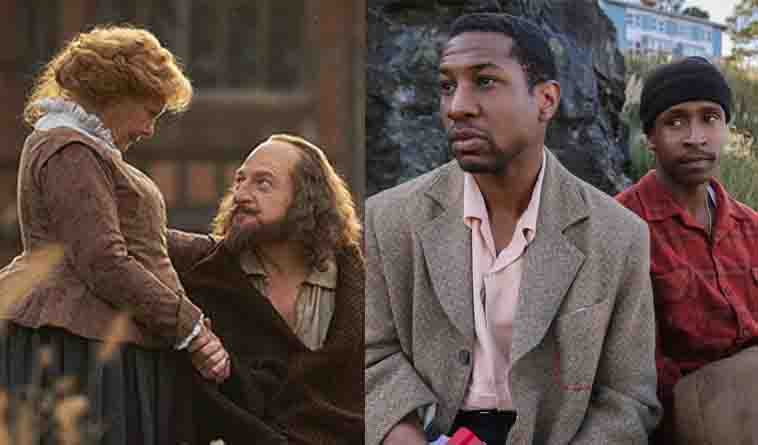These two stories showing at FilmScene are set thousands of miles, and hundreds of years, apart.
One features several actors considered legends; the other is a project of admired newcomers. One centers around a building, and the other revolves around a garden.
But the beautiful themes shared by “All Is True” and “The Last Black Man in San Francisco” are themes that can transform attitudes in difficult times, reinstate faith in authenticity, and revive or create a love of film.
First off, apologies upfront that you have only one day remaining, today, to partake of either of these films. “Last Black Man” has its last showing today at 7:45 p.m., and “All Is True” wraps today 3:30 and 6 p.m. showings.
“Last Black Man,” starring “in-demand” new actors Jimmie Fails and Jonathan Major, is a study in contrasts that features two friends following an unusual path to restore an abandoned, historic home in San Francisco. That path involves skateboarding, squatting, gang violence, and the collapse of a dearly-held myth about the home’s origins.
“All Is True,” featuring award-winning actors Kennth Branagh and Judi Dench, is historical fiction based on William Shakespeare’s life AFTER writing, when a garden and his family became top priorities. While trying to grow plants, Shakespeare takes an emotional journey that starts in grief over his son’s passing, and ends in elation over his daughter’s hidden talents.
How in the world can two films that contrast so drastically have so much in common?
Both are about finding the joy in situations where it seems elusive and maybe even non-existent. I’d say “Last Black Man” best illustrates this, through its constant juxtaposition of SF’s mostly white areas with its diverse neighborhoods. It does this in microcosmic ways, too: for instance, focusing on a street corner where gang members who are also childhood friends gather. Those gang members, shown in one scene tossing around the harsh language of the streets, are also revealed to have tender memories, and in one especially heart-wrenching scene, explosive tears. The constant theme of contrast between the tough/sad, and the tender/touching, is cathartic.
Both films demand that we care about authenticity. No surprise for “All Is True” considering its title: the film glorifies authenticity with a scenario that must have played out more times than we could ever know back in the 1700s: Shakespeare’s daughter is revealed to be the true author of prose the younger brother took credit for, by mutual agreement. Shakespeare is forced to both mourn the loss of his son’s mythical status in his memory, and he then lovingly embraces the truth. The healing that begins once all family members openly accept this reality is inspiring: the garden grows, the romance between Shakespeare and his wife springs again, and the smile and love of life returns to Shakespeare’s daughter.
And finally, both films remind us of why we watch cinema, even with both films’ flaws.
For “Last Black Man,” the weak spot is a story that seems to peak too early, leaving the ending anti-climactic. “All Is True” sometimes feels almost contrived in its formality and attempt to capture Shakespeare’s legendary inherent wisdom.
But even with these slightly distracting qualities, these films transport us and also lift us up. After watching either, you’re left with a sensation that even the most complicated and dire situations find their rightful resolution, and that satisfaction is pending.
These regular reviews of FilmScene offerings will appear in a more timely schedule in the future. For now, if you’re up for a last-minute change in your plans for tonight, these two FilmScene offerings are worthy choices.
FilmScene is at 118 E. College St., and tickets are also available online at www.icfilmscene.org.


